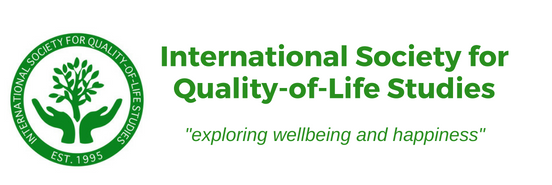
ISQOLS Webinar, "Economic growth, productivity and well-being"
Tuesday, 4 June
8:00 am PDT/11:00 am EDT/5:00 pm CEST
Presenter: Professor Paul Fisher
British economist Paul Fisher, has been researching issues around the slowing of economic growth and the apparent weakening in trend productivity. This is shown to be a much longer-term trend than commonly supposed. It is most easily explained as a natural evolution in the economic structure of all advanced countries as they develop. It will not be reversed by any of the economic policies currently on offer.
Declining output growth does not have to mean that living standards have to be stagnant. During the most recent period of weakening growth, the advent of smart, mobile personal computing has generated one of the most remarkable transformations in how people live. There are some downsides, but nevertheless, it is getting more problematic to equate well-being with measured income growth and the former is more important.
Economic policy needs to focus on facilitating the development of the economy of the future – not trying to recreate the economy of the past. Developed economies are already dominated by services and these are increasingly going digital. Supporting digital infrastructure, including making sure it is it safe and widely available to everyone, should be a primary objective for government policy. Meanwhile, the services sector still requires investment in people: better health and education for everyone is good for both economic growth and well-being.
The one area of traditional, physical investment would help to mitigate the declining trend in growth is the transition to net zero carbon emissions.Cheap, plentiful renewable energy will support output, jobs and incomes going forwards.If the largest developed countries don’t show leadership on net zero, then the world economy will not just slow down, it will eventually crash.
At this level, policies to improve economic outcomes should not be seen as party political. They can be private-sector or public sector led or a mixture.
Presenter:
Paul Fisher was a policy maker at the Bank of England for 26 years. As an Executive Director he served on the UK Monetary Policy Committee, the Interim Financial Policy Committee and he also became the Deputy Head of the Prudential Regulation Authority. He now has a diversified career of non-executive, consultancy and academic roles.
Paul teaches post-graduate courses for WBS, LIBF and the European University Institute, Florence. He is the editor of ’Making the Financial System Sustainable’, November 2020, Cambridge University Press.
His research and teaching interests include macroeconomic policy, central banking and sustainable finance. A full publication list is available at www.pgfpolicy.com.
